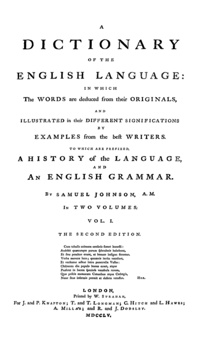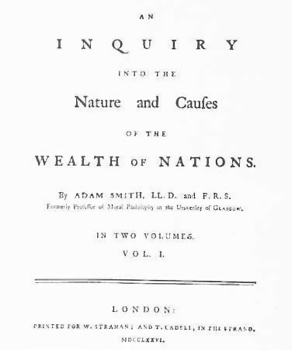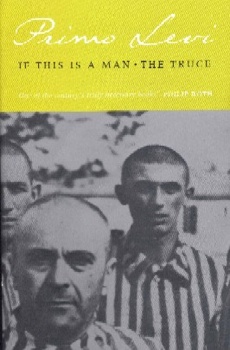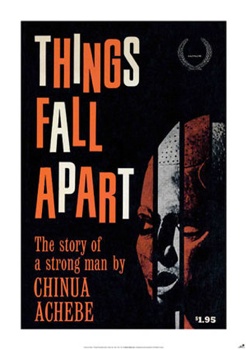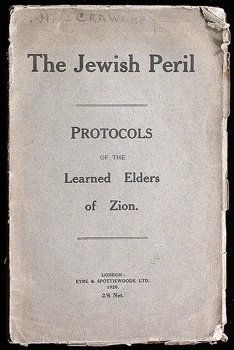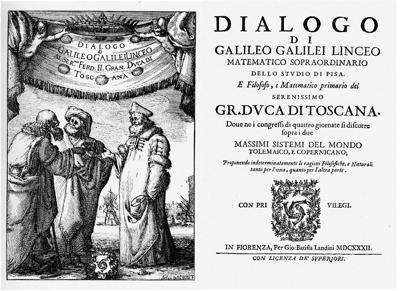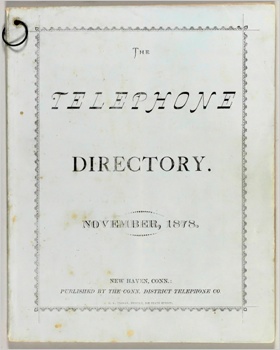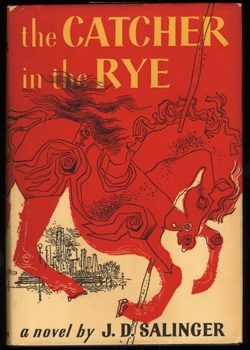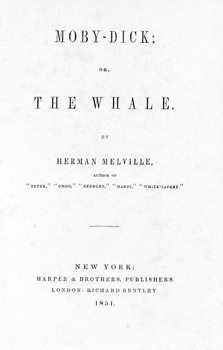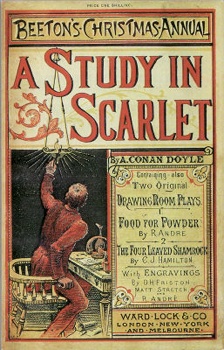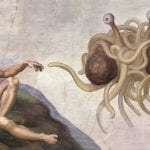 Movies and TV
Movies and TV  Movies and TV
Movies and TV  Humans
Humans 10 Times Scientists Were Absolutely Sure… and Absolutely Wrong
 Our World
Our World 10 Pivotal Moments for Life on Earth
 Movies and TV
Movies and TV 10 Most Realistic Medical TV Shows of All Time
 Creepy
Creepy 10 Eerie & Mysterious Ghosts of the Pacific Coast
 Weird Stuff
Weird Stuff 10 Typos That Accidentally Changed History
 History
History 10 Times Trickery Won Battles
 Technology
Technology 10 Awesome Upgrades to Common Household Items
 Misconceptions
Misconceptions 10 Hilarious (and Totally Wrong) Misconceptions About Childbirth
 Weird Stuff
Weird Stuff 10 Warning Labels That Exist Because Someone Actually Tried It
 Movies and TV
Movies and TV 10 Zombie Movies That Will Actually Terrify You
 Humans
Humans 10 Times Scientists Were Absolutely Sure… and Absolutely Wrong
 Our World
Our World 10 Pivotal Moments for Life on Earth
Who's Behind Listverse?

Jamie Frater
Head Editor
Jamie founded Listverse due to an insatiable desire to share fascinating, obscure, and bizarre facts. He has been a guest speaker on numerous national radio and television stations and is a five time published author.
More About Us Movies and TV
Movies and TV 10 Most Realistic Medical TV Shows of All Time
 Creepy
Creepy 10 Eerie & Mysterious Ghosts of the Pacific Coast
 Weird Stuff
Weird Stuff 10 Typos That Accidentally Changed History
 History
History 10 Times Trickery Won Battles
 Technology
Technology 10 Awesome Upgrades to Common Household Items
 Misconceptions
Misconceptions 10 Hilarious (and Totally Wrong) Misconceptions About Childbirth
 Weird Stuff
Weird Stuff 10 Warning Labels That Exist Because Someone Actually Tried It
Another 10 Books That Changed The World
This is the third installment of our “books that changed the world” series. Be sure to read the previous two so that you don’t think we have missed important books off the list. If you can think of books that are not on any of the three lists that deserve a mention in future, be sure to tell us about it in the comments. Here are the original two lists: Top 10 Books That Changed The World, and 10 More Books That Changed The World. These are in no particular order.
Why it changed the world: This book (though not the first dictionary) was the first to use literary quotations to illustrate the meanings of words. It set the stage for the scholarly study of language.
Published on 15 April 1755 and written by Samuel Johnson, A Dictionary of the English Language, sometimes published as Johnson’s Dictionary, is among the most influential dictionaries in the history of the English language. There was dissatisfaction with the dictionaries of the period, so in June 1746 a group of London booksellers contracted Johnson to write a dictionary for the sum of 1,500 guineas, equivalent to about £220,000 as of 2009.
Johnson took nearly nine years to complete the work, although he had claimed he could finish it in three. Remarkably, he did so single-handedly, with only clerical assistance to copy out the illustrative quotations that he had marked in books. Johnson wrote several revised editions during his life. Until the completion of the Oxford English Dictionary, 150 years later, Johnson’s was viewed as the pre-eminent English dictionary.
Why it changed the world: It virtually created modern economics – the free market and competition. In it, Smith proposes the invisible hand of the market: the pursuit of self-interest can be beneficial to society at large: for example, the Butcher, the Baker, and the Brewer provide goods and services to each other out of self-interest; the unplanned result of this division of labor is a better standard of living for all three.
An Inquiry into the Nature and Causes of the Wealth of Nations is the magnum opus of the Scottish economist Adam Smith. It is a clearly written account of economics at the dawn of the Industrial Revolution, as well as a rhetorical piece written for the generally educated individual of the 18th century – advocating a free market economy as more productive and more beneficial to society.
The work is credited as a watershed in history and economics due to its comprehensive, largely accurate characterization of economic mechanisms that survive in modern economics; and also for its effective use of rhetorical technique, including structuring the work to contrast real world examples of free and fettered markets.
Why it changed the world: This book on Levi’s time in Auschwitz changed man’s understanding for suffering and gave us an awareness of our unlimited ability to work for good or evil.
If This Is a Man (United States title: Survival in Auschwitz) is a work of witness by the Italian author Primo Levi. It was influenced by his experiences in the concentration camp at Auschwitz during the Second World War. It can be described as a memoir or a personal narrative, but it goes beyond mere recollection by seeking to consider the human condition in all its extremes through the narrative form.
The first manuscript for If This Is a Man was completed by Levi in December 1946. However, in January 1947, the manuscript was refused by Einaudi. Despite this, Levi managed to find another, smaller publisher who printed 2,500 copies of the book. 1,500 of these were sold, mostly in his home town, Turin. It was not until 1956 that Einaudi published the work in a revised form. On this occasion, the book had major worldwide success, being translated into English by Stuart Woolf in 1958, and into German by Heinz Reidt in 1959.
Why it changed the world: Achebe was the first African to writer to show the world that Africa had suffered brutally under colonialism. He finally gave a voice to the millions of oppressed and misunderstood Africans and for the first time, the world listened.
Things Fall Apart is a milestone in African literature. It has achieved the status of the archetypal modern African novel in English, and is read in Nigeria and throughout Africa. It is studied widely in Europe and North America, where it has spawned numerous tertiary analytical works. It has achieved similar repute in India and Australia. Considered Achebe’s magnum opus, it has sold more than 8 million copies worldwide. Time Magazine included the novel in its TIME 100 Best English-language Novels from 1923 to 2005.
Achebe’s writing about African society is intended to extinguish the misconception that African culture had been savage and primitive by telling the story of the colonization of the Igbo from an African point of view. In Things Fall Apart, western culture is portrayed as being “arrogant and ethnocentric,” insisting that the African culture needed a leader. As it had no kings or chiefs, Umofian culture was vulnerable to invasion by western civilization. It is felt that the repression of the Igbo language at the end of the novel contributes greatly to the destruction of the culture.
Why it changed the world: The historical hatred of the Jews in Europe was re-ignited by this anonymous book (believed to have been produced by the Russian Secret Police) and in time it formed the core of Hitler’s plan for their extermination.
The Protocols of the Elders of Zion is a tract alleging a Jewish and Masonic plot to achieve world domination. Purportedly written by a secret group of Jews known as the Elders of Zion, the document underlies 24 protocols that are supposedly followed by the Jewish people. The Protocols has been proven to be a literary forgery and hoax as well as a clear case of plagiarism.
The Protocols became a part of the Nazi propaganda effort to justify persecution of the Jews. It was made required reading for German students. In The Holocaust: The Destruction of European Jewry 1933–1945, Nora Levin states that “Hitler used the Protocols as a manual in his war to exterminate the Jews”:
Despite conclusive proof that the Protocols were a gross forgery, they had sensational popularity and large sales in the 1920s and 1930s. They were translated into every language of Europe and sold widely in Arab lands, the United States, and England. But it was in Germany after World War I that they had their greatest success. There they were used to explain all of the disasters that had befallen the country: the defeat in the war, the hunger, the destructive inflation.
Why it changed the world: Galileo’s Dialogue Concerning The Two Chief World Systems was the book that sparked off the centuries-long debate of science versus religion. It was the cause of Galileo’s imprisonment and the end of his writing career (with the exception of his Discourses). It was not the science of this book which was problematic – it was Galileo’s mocking of the Pope which caused him to come before the Inquisition.
The Dialogue Concerning the Two Chief World Systems was a 1632 book by Galileo, comparing the Copernican system with the traditional Ptolemaic system. In the Copernican system the Earth and other planets orbit the Sun, while in the Ptolemaic system everything in the Universe circles around the Earth. The Dialogue was published in Florence under a formal license from the Inquisition.
In 1633, Galileo was convicted of “grave suspicion of heresy” based on the book, which was then placed on the Index of Forbidden Books, from which it was not removed until 1835 (after the theories it discussed had been permitted in print in 1822.) In an action that was not announced at the time, the publication of anything else he had written or ever might write was also banned.
Why it changed the world: There is no doubt that the invention of the telephone is one of the most significant and world changing inventions in the history of man. But without the telephone directory, it would never have succeeded. The popularity of the phone relied on the ability of subscribers to know who else was subscribed so they could telephone them.
The first telephone directory, consisting of a single page, was issued on February 21, 1878. It covered 50 subscribers in New Haven, Connecticut. The Reuben H. Donnelly company asserts that it published the first classified directory, or yellow pages, for Chicago, Illinois, in 1886. The first British telephone directory was published in 1880.
In the US, under current rules and practices, mobile phone and Voice over IP listings are not included in telephone directories. Efforts to create cellular directories have met stiff opposition from several fronts, including a significant percentage of subscribers who seek to avoid telemarketers.
Why it changed the world: The frequent calls for this book to be banned due to teenaged sexuality and vulgar language have kept the concept of censorship clearly in the public eye. This novel is the archetype of the teenage novel – now a very popular genre in literature.
The Catcher in the Rye is a 1951 novel by J. D. Salinger. Originally published for adults, the novel has become a common part of high school and college curricula throughout the English-speaking world; it has also been translated into almost all of the world’s major languages. Around 250,000 copies are sold each year, with total sales of more than sixty-five million. The novel’s antihero, Holden Caulfield, has become an icon for teenage rebellion and defiance.
The novel was chosen by Time among the 100 best English-language novels from 1923 to 2005, and by Modern Library and its readers as one of the 100 best English-language novels of the 20th century. It has been frequently challenged in the United States for its liberal use of profanity and portrayal of sexuality and teenage angst.
Why it changed the world: This landmark epic novel proved to the world that America had a unique voice in the world of literature – a voice worth hearing. There is no doubt that America now dominates the world of modern literature.
Moby-Dick is an 1851 novel by Herman Melville. The story tells the adventures of the wandering sailor Ishmael and his voyage on the whaleship Pequod, commanded by Captain Ahab. Ishmael soon learns that Ahab seeks one specific whale, Moby Dick, a white whale of tremendous size and ferocity. Comparatively few whaleships know of Moby Dick, and fewer yet have encountered him. In a previous encounter, the whale destroyed Ahab’s boat and bit off his leg. Ahab intends to take revenge.
In Moby-Dick, Melville employs stylized language, symbolism, and metaphor to explore numerous complex themes. Through the main character’s journey, the concepts of class and social status, good and evil, and the existence of gods are all examined as Ishmael speculates upon his personal beliefs and his place in the universe.
Why it changed the world: The first “Sherlock Holmes novel” created the detective genre which has enthralled readers and filmgoers for well over a century. It can be said that Holmes changed the face of entertainment.
A Study in Scarlet is a detective mystery novel written by British author Sir Arthur Conan Doyle, which was first published in 1887. It is the first story to feature the character of Sherlock Holmes, who would later become one of the most famous and iconic literary detective characters, with long-lasting interest and appeal. The book’s title derives from a speech given by Holmes to his companion Doctor Watson on the nature of his work, in which he describes the story’s murder investigation as his “study in scarlet”: “There’s the scarlet thread of murder running through the colourless skein of life, and our duty is to unravel it, and isolate it, and expose every inch of it.”
The story, and its main character, attracted little public interest when it first appeared. Although Doyle wrote fifty-six short stories featuring Holmes, A Study in Scarlet is one of only four full-length novels in the original canon. The novel was followed by The Sign of Four, published in 1890.
This article is licensed under the GFDL because it contains quotations from Wikipedia.
